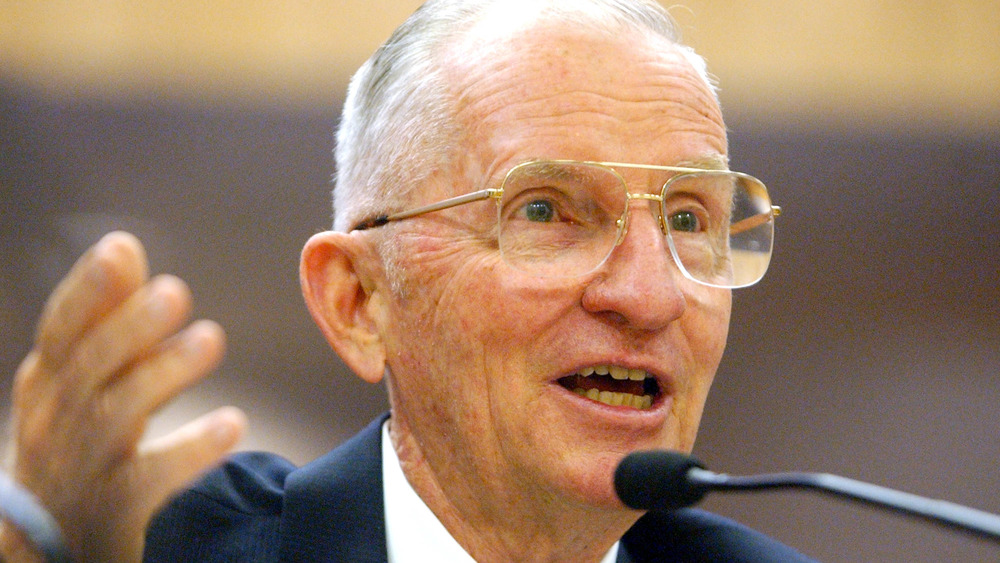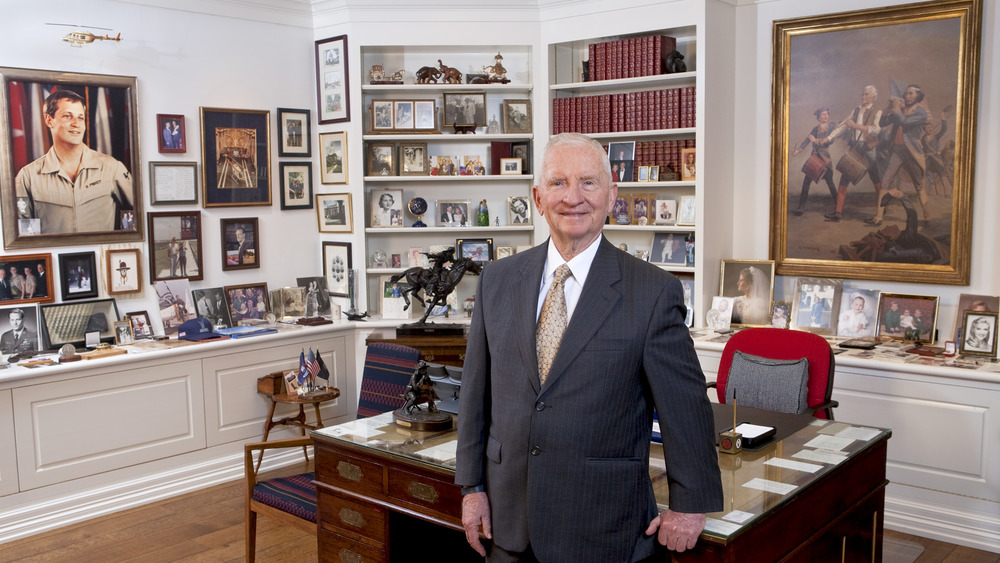Here's How Ross Perot Became A Billionaire
Two-time presidential candidate Ross Perot was short of stature, but not of personality nor ambition. And that ambition ended up ensuring that he was never short of cash, either. According to Forbes, he was worth a whopping $4.1 billion when he died in 2019. A graduate of the U.S. Naval Academy, he invested large amounts of money in what he saw as patriotic causes, such as recovering Vietnam POWs and the time he paid a mob of Iranian revolutionaries to storm a Tehran prison to break out two of his employees who had been taken captive there in 1979.
But Perot didn't come from money. He was the son of a cotton dealer from Texarkana, Texas. He had a paper route as a teenager, which he did on horseback. So, how did Ross Perot end up becoming a billionaire? Let's take a look at the life of the eccentric businessman and would-be politician and see just how he got so rich.
Ross Perot started his first business with just $1,000
According to UPI, Perot went to work for IBM in Dallas, Texas, after he graduated from the Naval Academy in 1957. To say he was good at his job would be an understatement. He started his fifth year with IBM by selling his quota for the entire year in the very first week of January. After that, he left the company to form his own, Electronic Data Systems Corp., which he started with just $1,000, and ultimately turned that investment into billions.
And he did so by finding his niche. The Associated Press reports that he noticed that IBM was focused heavily on the hardware of computing, so he founded EDS to focus on services. The company got big contracts in the mid-1960s, when the federal government created Medicare and Medicaid and needed a company to process the claims. When EDS went public in 1968, he was instantly worth $350 million, and that amount only continued to grow as the company's stock price rose. He sold EDS to General Motors for $2.5 billion, and he himself took a cool $700 million buyout. After that, he dedicated himself to harebrained bets with Air Force Academy cadets and failed presidential bids.

